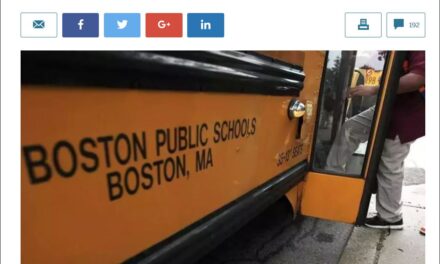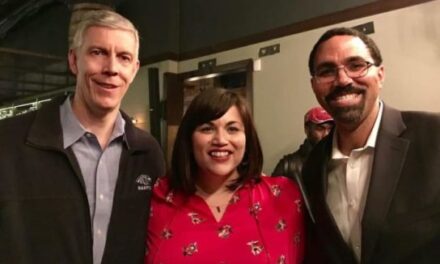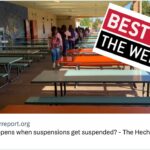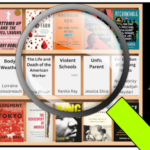The 69th Education Writers Association National Seminar is taking place starting Sunday, and all your favorite education journalists are scheduled to be there: members of the NPR education team, the NYT’s Peabody-winning Nikole Hannah-Jones, the Tampa Bay Times’ Pulitzer-winning Cara Fitzpatrick and Lisa Gartner, the the NYT’s Kate Zernike, WSJ’s Leslie Brody, etc. Plus there will be many big-name policy wonks and education leaders, such as Boston superintendent Tommy Chang, Stanford’s Sean Reardon, UPenn’s Angela Duckworth, the AFT’s Randi Weingarten, MA’s Mitch Chester, and EdSec John King.
The vast majority of the upcoming EWA annual conference in Boston starting this weekend is dedicated to helping journalists understand hot topics in education. There’s an app. There’s a print program. There are “lightning talks.” There’s a hashtag: #EWA16.
But there are also a slew of few panels and events focused on education journalism itself, including of course the annual EWA awards. The first morning of the conference is focused on journalists describing how they reported a challenging topic, using data, adding audio, and getting access. The afternoon session includes journalists like Kristina Rizga and Dale Russakoff talking about their book-length projects. Some of the “Lightning Talks” — 5 Mistakes Journos Make When Covering Ed Research, How to Really Talk with Boys from Diverse Backgrounds, Maximizing Digital Media for Reporting — focus on the tools of the trade.
The only topics missing that I can see are writing for social media (Snapchat, Facebook Live) and using images and graphics.
Teachers and education reporters have lots in common, notes EWA head Caroline Hendrie in the program introduction: “In both education and journalism, interest in addressing inequality and injustice – social, economic, and institutional – is on the rise. Both educators and members of the news media face demands for greater fairness from the communities affected by their work. Concern about inculcating cultural competence in both educators and reporters is keen. How to diversify both fields’ workforces remains a stubborn problem. At the same time, the two sectors are struggling to meet ever-changing standards of quality. After all, both fields are traversing periods of transformation, as new technologies and standards of excellence continuously redefine success.”
Indeed, as has been noted before, the overlap between education reporters and educators — including lack of diversity — raises some interesting issues.
The results of the EWA member survey will be released on Sunday. For more on #edJOC read Why Nikole Hannah-Jones Matters (To Education Journalism In Particular) or read some of the related posts at the bottom of the page.
Another notable angle: For the first time in recent memory, the EWA award winners will be announced at this event — after the Peabody and Pulitzer awards have already been named. For background on the finalists, read Hits, Misses, Snubs, & Mysteries.
Who funds all this? Well, the event is co-sponsored with BU’s Communications and Education Schools, and the sponsor page includes the Nellie Mae Education Foundation, Raikes, Wallace, Walton, Hewlett, Nellie Mae, American Federation of Teachers, Pearson, College Board, Edwin Gould, Gates, National Education Association, Secure Schools Alliance, American Institutes for Research, and Scholastic. Programming for new reporters comes from Spencer and the W.T. Grant Foundation.
Related posts: Efforts To Recruit More Journalists Of Color (To Cover Education); Just How White Is Education Journalism — & How To Encourage More #edJOC?; New Opportunities – & New Challenges – For 7 Education Journalism Teams; Delightful High School Swim Class Story Wins Murrow Journalism Award; School Segregation Coverage Wins 2 Pulitzers & A Peabody.
ABOUT THE AUTHOR

Alexander Russo
Alexander Russo is founder and editor of The Grade, an award-winning effort to help improve media coverage of education issues. He’s also a Spencer Education Journalism Fellowship winner and a book author. You can reach him at @alexanderrusso.
Visit their website at: https://the-grade.org/












